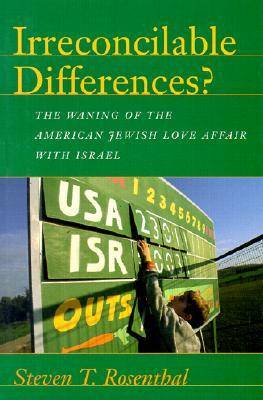Brandeis Series in American Jewish History, Culture & Life
1 total work
From the birth of Israel in 1948 to the mid-1970s, American Jews and Jewish organizations were virtually unanimous in their support of the Jewish state. The unification of American Jews around Israel, the creation of hugely successful mechanisms for financial and political support, and the nearly absolute prohibition of public Jewish criticism of Israel were among the most noteworthy achievements of organized American Jewry during the 60s and 70s. But by the 1990s, all this had changed. Sharp disagreements over religious legitimacy, Palestinian political aspirations, and the peace process had reached the center of the Jewish establishment, which felt increasingly uninhibited in publicly airing its dissatisfaction with Israeli policies. Steven T. Rosenthal offers the first full-scale examination of the nature and development of the American Jewish response to Israel. He traces the rise of community consensus and its subsequent dissolution in the face of a series of critical confrontations between American Jews and the Jewish state. In lively prose, he reviews the crises and missteps that transformed this relationship from one of uncritical Israelotry to disenchantment and distress. The invasion of Lebanon, the Pollard spy case, the Who is a Jew? controversy, and the Palestinian Intifada have shattered American Jewish unanimity, but, as Rosenthal notes, dissolution stems as well from a half century of internal changes and the evolution of Jewish identity in both Israeli and American society. As Israel's heroic age fades into history, he argues, Israel has become less and less important to American Jews, who are increasingly obsessed with home-grown crises such as the skyrocketing rates of intermarriage. Meanwhile Israel itself has, in many ways, outgrown its need for American Jewish paternalism.
